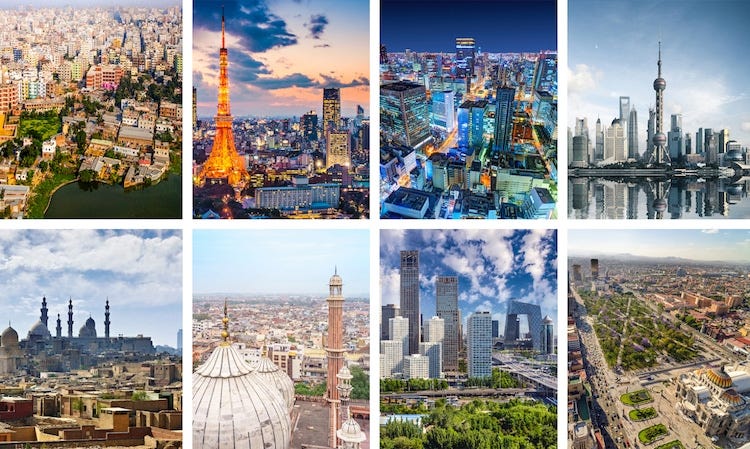Types of Cities: -POLIS
A good city is like a good party. People don't want to leave early.
Saturdays are perfect days for urban surprises. Surprise—we’re talking about the root -POLIS and types of cities!
The story of civilization is written in its cities, from the smallest settlement to the most colossal conurbation. The suffix -POLIS meaning city derives from POLIT- meaning city, state, or citizen in words like police or politico. This root looms large in discussions of geography (Annapolis, Indianapolis, Minneapolis) and history (Heliopolis, Persepolis).

What are some important -POLIS words?
acropolis (noun) - a citadel or fortified part of a city build on a hill or high ground
BREAKDOWN: ACRO- (hill) + POLIS- (city)
cosmopolis (noun) - a city, often internationally important, inhabited by people from many different countries (see cosmopolitan)
BREAKDOWN: COSMO- (world) + POLIS- (city)
chronopolis (noun) - a fictional city or place associated with manipulating or controlling time
BREAKDOWN: CHRONO- (time) + POLIS- (city)
metropolis (noun) - a very large and densely populated city, typically the busiest and most important in a country or region
BREAKDOWN: METRO- (mother) + POLIS- (city)
megalopolis (noun) - an interlinked cluster of several large cities forming a continuous, densely populated area
BREAKDOWN: MEGALO- (great) + POLIS- (city)
necropolis (noun) - a large, ancient, and often elaborate cemetery; a “city of the dead”
BREAKDOWN: NECRO- (dead) + POLIS- (city)
“Great cities are not static, they constantly change and take the world along with them.” —Edward Glaeser



Chronopolis
Guided attention
The key out of dodge
⚡️💜❤️🔥💙⚡️